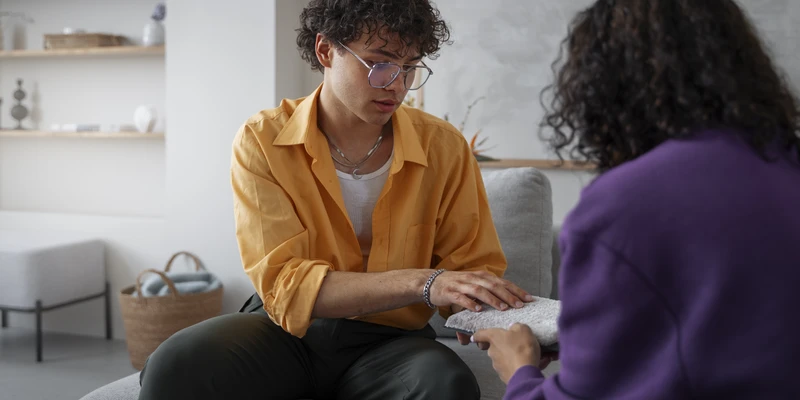
Table of Contents
- Understanding Cocaine Addiction Recovery Pathways in Acton
- What Cocaine Detox Looks Like in Greater Los Angeles
- Choosing Between Inpatient and Outpatient Programs in Los Angeles
- Need to Detox?
- Therapies That Support Long-Term Cocaine Recovery
- Insurance and Cost Considerations for Cocaine Rehab
- Access, Availability, and Cultural Fit in Los Angeles Rehab
- Next Steps What To Expect When Starting Cocaine Addiction Recovery
- Find Verified Cocaine Recovery Centers Near You

Cocaine addiction can be intensely isolating, often masking deeper emotional pain and disrupting your relationships, career, and health. If you or someone you love is struggling in Los Angeles, it’s important to know that compassionate, evidence-based help is available nearby. The city’s trusted network of recovery resources offers a lifeline—whether you live in Hollywood, South LA, or the Valley, effective support is within reach.
Los Angeles is home to a wide range of specialized treatment offerings, and many facilities are experienced in treating stimulant use disorders, including personalized plans that integrate medical detox, therapy, and long-term support. From Westside clinics to community-based services in East LA, residents can explore options that meet them where they are—physically, financially, and emotionally.
Seeking recovery isn’t about shame—it’s about reclaiming your life. Whether you’re looking for a full-time LA rehab for cocaine use or more flexible recovery programs near you, starting the process in a city like Los Angeles means finding both clinical expertise and real cultural understanding.
Understanding Cocaine Addiction Recovery Pathways in Acton
Recovering from cocaine addiction in Acton, a small yet connected region within Los Angeles County, follows structured stages that mirror evidence-based practices found throughout California drug addiction recovery programs. Local providers emphasize both medical stabilization and psychological healing, integrating these processes within personalized formats that respect each person’s pace and background.
The stages of cocaine recovery typically begin with detox—often medically supervised—to manage physical withdrawal effects safely. This is followed by a transition into either inpatient or outpatient care depending on clinical need, home support, and co-occurring conditions. Many Los Angeles-area facilities implement cognitive behavioral therapy (CBT), motivational interviewing, and relapse prevention planning as core components during these stages.
Acton-based and regional treatment centers often recognize the importance of tailoring programs around individual and cultural needs. Some offer bilingual services and trauma-informed approaches to ensure alignment with the diverse LA population. Importantly, the continuum of care here supports long-term sobriety through aftercare planning, peer support, and ongoing counseling, positioning individuals not just to quit cocaine, but to rebuild a sustainable life in recovery.
In Acton, access to these structured recovery pathways means that individuals seeking help are not isolated—they’re part of a broader Los Angeles network striving toward holistic and lasting healing from cocaine addiction.
What Cocaine Detox Looks Like in Greater Los Angeles
Detox is the first critical step in cocaine addiction recovery. For individuals in Los Angeles, this process often takes place in specialized drug detox centers that provide medical supervision, emotional support, and safety during the initial days of withdrawal. Cocaine doesn’t produce the same physical withdrawal symptoms as opioids or alcohol, but the psychological effects can be severe—making detox a pivotal stage in the healing process.
Symptoms of cocaine withdrawal can begin as soon as 6 to 12 hours after the last use and may last for several days to a couple of weeks. Common symptoms include fatigue, anxiety, depression, severe cravings, and agitation. In some cases, individuals may experience sleep disturbances and intense mood swings, which can complicate the early stages of detox. Due to these challenges, many treatment professionals recommend medically supervised detox, especially for those with a history of heavy or frequent use.
Los Angeles drug detox facilities typically offer 24/7 care, access to clinicians trained in substance use treatment, and environments that support both physical rest and emotional stability. Some detox centers in Los Angeles also offer dual diagnosis evaluations during this phase, identifying co-occurring mental health conditions that might be contributing to substance use.
From West LA to Pasadena and beyond, you’ll find a variety of detox centers tailored to individual needs. Whether in a standalone detox facility or as part of a full-service rehab center, the goal is to help you or your loved one stabilize and lay the groundwork for the next step of cocaine addiction recovery. Safe detox is not just about withdrawal management—it’s about preparing for long-term healing.

Choosing Between Inpatient and Outpatient Programs in Los Angeles
Choosing between inpatient and outpatient programs for cocaine addiction recovery in Los Angeles depends on your specific needs, lifestyle, and the severity of your substance use. Both settings offer structured care and access to professionals, but the intensity and format differ. Inpatient cocaine rehab in Los Angeles typically involves living at a treatment facility full time, removing you from outside stressors and triggers. This immersive environment helps stabilize early recovery, particularly after detox or multiple relapses.
Outpatient cocaine rehab in LA allows individuals to attend therapy and services while living at home or in a sober living setting. This can be ideal if you have strong social support, steady employment, or caregiving responsibilities. While less intensive, outpatient programs still offer structured schedules and counseling but require greater self-motivation to stay on track. It’s a useful option for those in earlier stages of addiction or transitioning from inpatient care.
Matching the level of care to your current situation is vital for success. Someone navigating intense cravings or co-occurring mental health issues may benefit more from inpatient supervision. Conversely, those with stable living conditions and lower risk factors may do well in outpatient programs. Fortunately, Los Angeles offers diverse care models—from intensive outpatient programs in West LA to long-term inpatient support in surrounding areas like Pasadena and Beverly Hills—so ongoing local treatment is always nearby regardless of setting.
Daily Schedules in Inpatient Cocaine Recovery
In an inpatient cocaine rehab setting, your day typically follows a structured routine designed to promote consistent healing. Mornings often include medication management (if needed), followed by group therapy or educational sessions to build skills around addiction and recovery.
Afternoons may involve individual counseling, experiential therapy (like art or movement), or relapse prevention workshops. Evenings can include community peer support groups and personal reflection time. This consistent framework minimizes idle time and allows for deep focus on recovery goals within a supportive environment.
Therapies That Support Long-Term Cocaine Recovery
CBT Strategies for Cocaine Relapse Prevention
Cognitive Behavioral Therapy (CBT) plays a central role in treating cocaine addiction in Los Angeles. This evidence-based approach helps individuals identify the situations and thought patterns that often lead to cravings or relapse. In structured counseling sessions, participants practice cognitive restructuring to challenge negative beliefs and replace them with healthier, more realistic alternatives.
Explore CBT for relapse prevention. CBT also emphasizes the development of practical coping skills. Clients learn how to manage high-risk situations, handle emotional triggers, and build routines that support recovery. Many cocaine counseling programs in LA incorporate CBT into both inpatient and outpatient models, giving clients flexible yet effective tools for long-term success.
Using Motivational Interviewing During Recovery
Motivational Interviewing (MI) is another widely used therapy in cocaine addiction recovery across Southern California. This person-centered technique helps individuals resolve ambivalence about quitting cocaine, often enhancing their internal motivation through guided conversations. Rather than confronting denial, MI builds rapport and empowers clients to find their own reasons for change.
Many programs explore motivational interviewing alongside other treatments to encourage engagement and strengthen commitment. The method’s collaborative style is particularly effective for those struggling with co-occurring conditions or early resistance to recovery. Whether applied one-on-one or in group settings, MI helps lay the groundwork for lasting behavioral change.

Insurance and Cost Considerations for Cocaine Rehab
The cost of cocaine addiction recovery in Los Angeles can vary widely based on the level of care, length of stay, and whether services are provided on an inpatient or outpatient basis. While private rehab centers may charge several thousand dollars for a month of comprehensive treatment, there are also more affordable and public options available throughout LA County. Understanding the financial aspect shouldn’t be a barrier to getting help—especially with the support of insurance plans and local resources.
Many residents access care through California insurance rehab coverage, including Medi-Cal, which is California’s Medicaid program. Medi-Cal often covers essential services like detox, outpatient treatments, medically supervised care, and dual diagnosis rehab for those dealing with both addiction and mental health concerns. Additionally, private insurance providers such as Blue Cross Blue Shield and Kaiser Permanente offer varying degrees of rehab coverage, which may partially or fully offset program costs. It’s important to review each plan’s coverage level and pre-authorization requirements before entering rehab.
Thankfully, several cocaine treatment centers in Los Angeles work with both public and private insurance to expand access to care. Through LA County addiction services, residents can find low-cost or no-cost treatment options, especially in high-need areas. Financial counselors at treatment facilities can also help navigate co-payments, sliding-scale fees, or payment plans, ensuring that no one is turned away due to financial limitations. Reaching out to verify what’s covered and what assistance is available is an empowering first step toward sustainable recovery.
Access, Availability, and Cultural Fit in Los Angeles Rehab
Spanish-Speaking Cocaine Counselors Near Me
In a city as diverse as Los Angeles, having access to bilingual addiction professionals is essential. Many cocaine treatment centers in Los Angeles offer Spanish-speaking counselors to support Spanish-preferring clients and their families. During the intake or assessment process, you can ask directly about bilingual services to ensure these are available throughout detox, therapy, and aftercare.
Language should never be a barrier to getting help. Spanish-speaking staff can assist in communicating complex concepts, easing emotional expression, and ensuring treatment plans are fully understood. Whether you’re looking near West LA, East LA, or Southern California’s broader metro area, programs increasingly recognize the need for fully Spanish-integrated recovery services that are affirming and accessible.
Culturally Sensitive Cocaine Rehab Tracks in LA
Cocaine addiction recovery in Los Angeles is becoming more inclusive, with many programs embracing culturally sensitive treatment models that reflect the backgrounds, values, and experiences of their clients. Whether someone identifies with specific racial, cultural, religious, or LGBTQ+ communities, rehab centers in areas like Hollywood, Pasadena, and Beverly Hills are creating safe, affirming environments to support recovery.
These programs may offer culturally matched group therapy, staff who represent the demographics they serve, and curricula adapted to address identity-based stressors and community-specific challenges. For many, feeling seen and understood in treatment enhances long-term outcomes and fosters deeper, more trusting therapeutic relationships. Especially in LA’s diverse landscape, finding a program aligned with your cultural values can help reinforce healing, self-worth, and belonging.

Next Steps: What To Expect When Starting Cocaine Addiction Recovery
Beginning cocaine addiction recovery in Los Angeles can feel overwhelming at first, but understanding what happens next can make the transition smoother. Once you’ve identified a cocaine treatment center in Los Angeles that fits your needs, the recovery process often begins with a clinical intake. This includes an assessment of your medical history, substance use patterns, and any co-occurring mental health concerns. The goal is to create a personalized treatment plan to guide your recovery in a safe, effective way.
Timelines for starting treatment may vary. Some LA programs offer same-day or next-day admissions, especially for urgent cases. Detox is often the first step, particularly when cocaine use has been prolonged or intense. This may be handled in a stand-alone detox facility or as part of a comprehensive rehab program.
Following detox, you’ll be introduced to your treatment team, which may include therapists, physicians, case managers, and peer support specialists. Whether you opt for inpatient or outpatient rehab, expect a structured schedule of therapy sessions, health monitoring, and skill-building workshops.
By preparing yourself for the initial steps in recovery, you’re taking a powerful move toward healing. The process is individualized—and Los Angeles offers a wide range of approaches to meet you where you are.
Find Verified Cocaine Recovery Centers Near You
Wherever you are in Greater Los Angeles—from Pasadena to Beverly Hills—there are reliable, accredited recovery centers ready to support your healing from cocaine addiction. Taking the first step might feel overwhelming, but local help is often closer and more accessible than you think.
Whether you’re searching for outpatient support near your neighborhood, medically supervised detox services, or residential programs in nearby communities, the right fit depends on your needs, culture, and comfort. Many centers across Los Angeles County specialize in Cocaine Addiction Recovery and understand the unique challenges that residents face.
When you’re ready to explore options, you can search by location, filter by services like dual diagnosis care or family therapy, and compare offerings to find a place that feels right for you or your loved one.









































